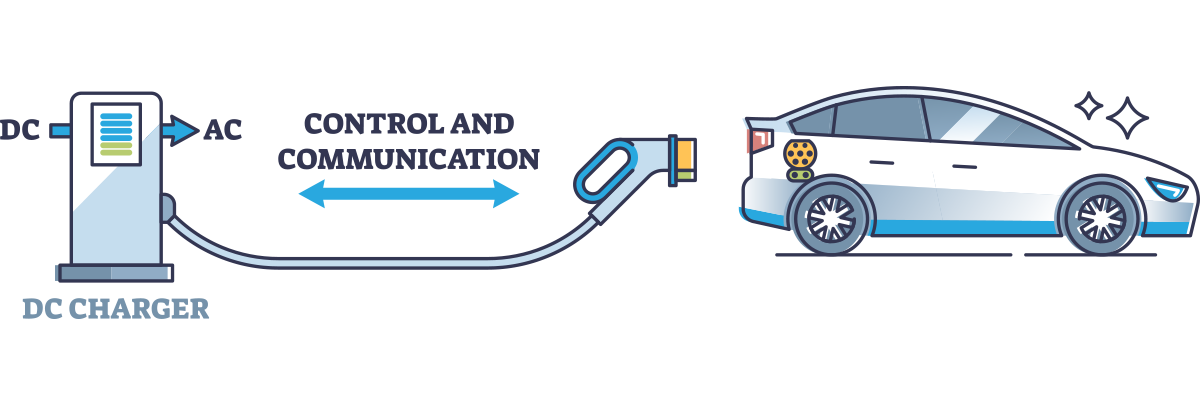Electric vehicle chargers are divided into 3 main subgroups.
There are three main types of chargers when it comes to charging your electric car’s battery pack. These options will mostly affect how fast you can charge your vehicle and also, the type of charger may give you the convenience of doing it at home.
The charging speed will also vary depending on which EV you own and your battery capacity.
There are three categories or types of charging: Trickle Charge, AC Charge, and DC Charge.

Level 1: Standard Wall Outlet (120 Volt AC)
TRICKLE CHARGE
The slowest method of charging your EV at home, using a standard plug. It is not the most recommended method of charging.
- Range: Adds 5 miles per hour of charge*
- Standard Level 1 connector.
- Every EV will come with a standard Level 1 charger that you can plug into an outlet at home without special installation required.
- A better option for plug-in hybrid vehicles vs. fully electric vehicles. May be used overnight.
- When hooked up to a 120V AC plug, charging rates cover between 1.4kW to 3kW .
sustainable services

Level 2: WALL CHARGER (240-Volt AC)
FASTER AC CHARGE
A wall charger installed in your garage lets you charge 3-4x faster than using AC Household Charging.
- Range: Adds 20-60 miles per hour of charge*
- Can be installed at home.
- Often found in public areas like shopping centers and restaurants.
- Installed by a licensed electrician.
- Quick charging – full charge overnight.
- Charging rate of 7kW to 22kW with a Type 2 connector.

Level 3: DC Fast Charging
FASTEST DC CHARGE
Level 3 charging is the fastest way to charge an electric vehicle.
- Range: Adds 60-100 miles per 20 minutes of charge*
- 80% charge usually within 20 to 30 minutes.
- Tesla DC fast chargers will only work with Tesla vehicles.
- Public DC Fast charging station with power from 50kW and above.



